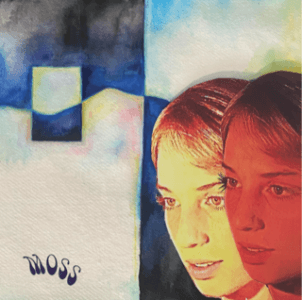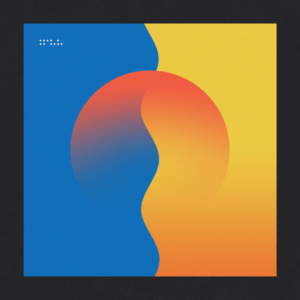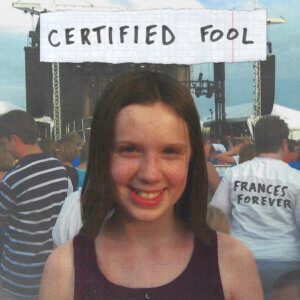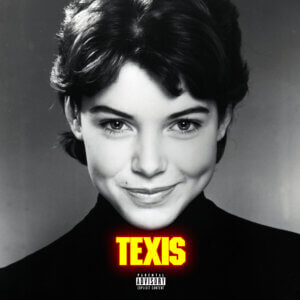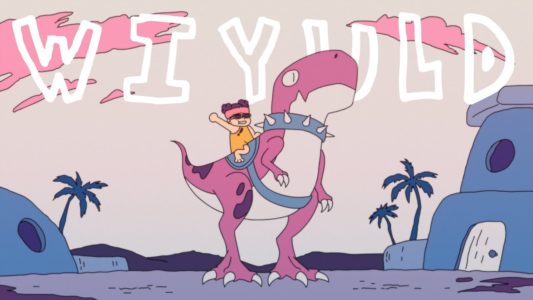Our interview with DMA’S Johnny Took

The story of the DMA’S began, the way all good stories do, with a bit of a twist in the tale. Three guys from Australia, playing in other bands, stumble upon each other. They write songs, and there’s a buzz, a connection. Suddenly they’re signed, but they’ve never played together live – and there’s a lot of bets riding on that it won’t all work out. But it does. The single takes off, the live shows are good, and suddenly the hype isn’t hype anymore. That means that Johnny Took, Tommy O’Dell and Matt Mason are looking to the future. Comparisons to Oasis, another band who was no stranger to controversy, follow, with all the good and bad that could come out of that. Fortunately, the DMA’S have seen a bit of territory and were ready to make good on all the promise. Their self-titled EP is coming out here May 18th on Mom + Pop Music, and Northern Transmissions was curious to get the dirt before the DMA’s hit the Northern Hemisphere. So Alice Severin spoke with Johnny Took on the other side of the globe while he was in a pub and she was waking up, about recording, hearing your own voice, and being honest.
NT: Hi, how are you and where are you?
JT: Good mate, what’s cracking? I’m in Adelaide at the moment. South Australia. Got some family down here, so that’s nice.
NT: How’s the weather? Have you been having terrible storms down there?
JT: Yeah yeah yeah. It’s even pretty bloody heinous down here as well. But it’s all right. I kind of like the rain anyway, makes me feel cool.
NT: And you’re playing a bunch of festivals and shows down there this week.
JT: We’ve playing a festival called the Groovin the Moo but it’s all around in like rural areas of Australia. Which is kind of cool, you know, because it’s nice to be able to hit those, going to like the country towns and whatnot, and still play in front of a decent crowd.
NT: It must be great – the spaces are so vast there and it’s not as easy to get around.
JT: No, it’s not. That’s one cool thing whenever we come to the Northern Hemisphere, all the driving’s a piece of piss, you know. Because I’m so used to driving 12 hours from Sydney to Melbourne, or 14 hours from Melbourne to Brisbane, you know? That kind of far.
NT: I don’t think people realize how big Australia is.
JT: It’s huge, man. That’s what’s cool about the States is that you can go there, and you only have to do a few hours in the car, and you’re already to another place.
NT: Especially on the East Coast, things are pretty compact. And you’re going to be here playing Governor’s Ball. You’ve actually got a huge tour lined up for the spring and summer – and you’re going to be over in the UK.
JT: Yeah, it should be crazy. Hopefully we’ll be good by the end of it! (laughs)
NT: When the first single took off, apparently you’d never played live together.
JT: No, we hadn’t.
NT: You’d played live in other bands though. What did you have to do to start playing together and what was it like?
JT: It was really weird. Tommy had never sung live in a band before. That was pretty different. But I kind of felt from all the things I’d learned from other bands in the past that it wasn’t really an issue of…I kind of knew that if I got the right people it would come together, you know, pretty quickly. You start getting a little bit older, you know, I still think in my head, I was just saying to my buddy, Archie, tonight, when I was catching up with him at dinner, I still feel like I’m 19 in my head, you know, but not anymore. I’m 26 next month, and you realize at the same time that if I was 19 we wouldn’t be able to put together the kind of band that we did, and have the people with that kind of experience, you know?
NT: Do you think you’ve got a sort of chemistry together? What made you come together and start writing songs?
JT: The chemistry and the relationship that I’ve found between myself, Tommy, and Mason is like no other relationship I’ve ever found, I’ll be completely honest with you. It’s very honest, there’s a massive no bullshit approach, there’s no egos, and for some reason we kind of correlate. I don’t know, we just write lots of good tunes and we’re always on the same level. And we respect each other’s pros and cons.
NT: How did you get Tommy to start singing if he’d never really done it before? Did you have to twist his arm?
JT: I heard him play when I was in this psych band, I was playing bass, he was playing drums. And I used to hear him singing, in rehearsals. He’d be like, “Oi, Jack, you know in the chorus when it’s like…(starts singing)”. And I’d be like, wow this guy’s voice is fucking crazy. And then, recording got a lot easier, to do home recordings and shit, and I started getting into that, about 4 or 5 years ago. And I was just at home one time recording, and I had some lyrics written out for a new song I’d written, it was like a folk tune or something. And Tommy asked if he could have a go at it, ‘cause he’d never sung into a microphone before. And he’d never heard his voice recorded before. And from there, he goes, Tooky man, do I sound like that? And I was like, yeah dude, straight up. And then we kind of fell in love with his voice at the same time and just been writing from there. Taking a song that I’ve written, and to go from hearing myself sing it to hearing someone like Tommy sing it, it’s such a privilege, you know? I talk about it all the time, and we write songs together, and Tommy comes in and sings them, puts his own flavor on them.
NT: That’s brilliant. It’s so unique too, because a lot of people, even if they have a good voice, they hear their voice for the first time and they’re like…eh. But to have that feeling, that, yes, this is the right thing to do, must be good.
JT: I think it’s about what’s most appropriate for the song, you know? I’ve written other songs which Tommy’s voice probably wouldn’t sound that great on. But for the stuff we do for DMA’s, we always keep that in mind and I feel it’s one of our strongest weapons anyhow. I remember the first show we played and everyone in Australia was like (puts on voice) “these guys, they can’t play the show,” all this shit like that. And there was one comment like, “Tommy O’Dell’s voice is the real savior of the live performance, you can really tell there’s that honesty in his lyrics.” And I was like, I write pretty much most of the lyrics, so I was like, fucking A, if you guys are believing him and you feel that you can hear honesty in those vocals, you think that he wrote every line like that, then that’s the most important thing, you know? That’s what people are looking for, I think. Through all the bullshit, and everything that’s been done, people are looking for honesty these days.
NT: It’s true. There’s so much available, it does stand out when the people behind it sound like they actually mean it.
JT: Yeah, that’s it.
NT: How did you start recording in your room? Are there certain programs that you like using, and what did you start out with?
JT: A program called Digital Performer 5 which is a less than ideal program, you know? (laughs) Like looking back on it. But I wasn’t on it for very long, and I got on to Pro Tools pretty quickly. But I, you know, when I first started singing I was a horrible singer, and I taught myself how to sing just through recording my own voice, you know? And listening back to it. And then I realized that it doesn’t only work for singing, but it works for songwriting, it works for guitar playing and just everything. I really enjoyed the, what’s the word, the vulnerability of listening back to yourself after doing a recorded music take. And all of a sudden, if you go to a nice studio, you don’t get nervous anymore, you know, because you’ve done it a hundred thousand times. That’s always been my lot. Also, like with songwriting, I found that recording was the best way to write tunes, you know? Mason and I, or Tommy, could just put down all these parts to a drum machine and bpm, and just chop it up and see what’s cool, and see what’s not.
NT: Do you wind up having lots of ideas that you bring back, or have on hold?
JT: All the time, all the time. Because that’s all it really is, anyway, as far as I am concerned. It doesn’t matter what key you play something in, you can just keep changing the chords anyway. You can change the chords to suit that key, and if it works, it works.
NT: So your first big song was Delete, and you had this big breakthrough a year ago. What was that like?
JT: It was cool. It was really unexpected, we didn’t know what anyone would think, we didn’t even really think of it as a single, to be honest. Our label thought it would be a good single to come out. We don’t really know the difference, we just write tunes, we like them all for different reasons. But yeah, it was nice that that song started getting some attention, you know? I think it did pretty good for three fucking chords. (laughs) It’s all right, that’s pretty cool. It kind of put us on the map, which makes other things easier, but at the same time there’s more work to be done, we want to get this album out with all the new songs on it, you know?
NT: One of the songs I really like is The Plan.
JT: Yeah, I remember when Mason first showed me, he did a demo of it on his iPhone, just playing it on his piano at home, and I remember him playing it to me. I think we wrote the other parts when we were out touring with another band in Melbourne at the time. And we came back and ended up jamming with Tommy, and kind of felt it come together. It’s quite cool. The recording of it’s quite tame. It’s weird, even though we recorded it with a full drum kit, we only used the cymbal parts. And then like we replaced it with a drum machine that we originally had on it, so it sounds quite bizarre. You can hear the cymbals and they don’t quite sound like the normal way you’d hear a cymbal. They sound very overhead-y, which is kind of weird, kind of cool.
NT: You produce all the music, so do you have a certain kind of sound that you are looking for, or do you like experimenting?
JT: Oh, you never stop learning. I feel like every single song I listen to, there’s pros and cons I like about it, you know? I hear a really fat snare drum from something like Darklands, or Automatic, Jesus and Mary Chain, or something like that. And then I hear a beat that’s got a thin snare, but it sort of sounds cool, it’s appropriate, whatever. You know what I mean? It’s all different. So I don’t know. I’m quite erratic in what I like but then I kind of realized I just like it all, for all its reasons. But basically, I’m into noisy as fuck guitars and big pop melodies and honest lyrics.
NT: Of course, there’s been things in the press about comparisons to Oasis, and things like that. And I think I’d read that you talked about the 90s being a big influence to your sound. Do you agree?
JT: I don’t know. I guess shit started getting pretty real in the 2000s. Like big production in a real different way. Like Jay Z, lots of beats, lots of big beaty music and shit like that was coming in. And also like with the way record deals were, the 90s were kind of like the end of that. But to be honest, we don’t think about that stuff when we write. I think, I don’t know, if you actually listen to Oasis, I don’t think we sound that much like them at all. I kind of get it with the melodies a bit, you know, catchy melodies. But I think we sound more like The Verve, or Stone Roses or something like that. You know what else I think is a big part of it? The acoustic guitar. There aren’t many rock and roll bands, that play real bad ass, like loud rock and roll that have the acoustic guitar as the main feature, as the core. It brings it back to that honest, singer-songwriter thing. And then it goes in and out from that, and wall of sound, which was a big thing. Like The Verve did that, all those bands did that amazingly. The La’s. What the fuck. So good. What a band. All those cool and interesting pop melodies. But Mason had never even listened to Oasis before he joined the band. He’d heard the name, but never really listened to them before.
NT: It’s a bit dreamier, your music.
JT: Yeah, it’s quite nostalgic sometimes. I like the fact that people can listen to music and they can have their own take on it, you know? Isn’t that what it’s all about? I think the biggest thing for me is, I don’t know, people talk about having influences and all that stuff, and I get it, and there’s a place there for all types of music, and then there’s also people who write music to break the barriers, or write something new. But for me, I don’t think about it in that way. I’m happy to use three or four chords or I’ll happily use bloody eighteen chords. But music is a feeling for me. Like I said before if the lyrics are honest, and you’re not being a phony about it and you’re writing tunes that you want to write, then you know. There’s a really negative thing in Australia at the moment where pretty much there’s only one station that you can get played on. And people try and write because they think the station is playing this type of music, or this station likes this type of music, or people who listen to the station like this type of music. And it’s not about that, you know? For me, music is a feeling and it’s like, if it has one, two, or three chords and you can listen to that tune, and it made you feel amazing or horrible, but you still want to put the song on again, that’s what it’s about for me.
NT: It sounds like you’ve thought a lot about the state of the music industry and what you’re trying to do with your own creative thinking.
JT: Like I said, with the whole Oasis thing, though I think if you actually know your music, you can tell that there’s a lot of other influences. It’s just easy for people in Australia, because they don’t actually know much music from that kind of genre or era, where the only band they know is Oasis, because they’re the biggest, you know, so they just instantly go for that. It’s quite naïve, you know. But if you look at the state of social media, and people making comparisons – I’ve stopped caring. I’ve stopped caring about what anyone else fucking thinks. Actually, you know what? I haven’t stopped caring, I never actually cared about it. I used to play in a country band, you know? In Australia, country music isn’t cool at all. I think country music is cool as fuck, you know? But it doesn’t stop me and my mates from playing it.
NT: When you’re in the States – you’re going to be at Bonnaroo, in Tennessee, so are you going to get a chance to go to Nashville and check it out?
JT: I probably won’t get much of a chance to check it out. But at the same time, I’m pretty excited about our trip. We’re going to see some amazing, amazing acts at some of these festivals. You know, see how the best of the best do it. That’s what I’m excited about, to see some of these modern day artists who I really respect and they’re really taking over the world right now, watch their live show, see how they fucking do it.
NT: And you’re going to be at the Gov Ball and the Knitting Factory in New York.
JT: That’s right. I went to a bar right across the road from there, when I first came to NY. The Commodore? I met up with some mates from there when we first arrived, and I hadn’t seen one of them in a year. You know what’s really funny? No one really drinks cocktails in Australia, they’re so expensive. But they’re actually quite affordable in America. So I remember going to up to this bar, and drinking all these flamboyant cocktails, so fancy, like so much fruit in them and shit. It was cool. (laughs)
NT: What was your favorite cocktail?
JT: Well, I’d never had a Pina Colada before, I know it’s not very cool, I’m more of an Old Fashioned kind of guy. But I’d never had a Pina Colada, I pretty much got one because I’d heard them in so many songs since I was a kid. It was pretty funny, like all coconut and shit in some of them. I’ll try this, I’ll try that.
NT: It sounds like a good night.
JT: It was a great night.
NT: And five albums that inspire you.
JT: Darklands – Jesus and Mary Chain
The La’s – The La’s
Yankee Hotel Foxtrot – Wilco – I love Jeff Tweedy, he’s an amazing song writer.
Graceland – Paul Simon – I remember being four years ago and driving up to the bottle shop with my old man, listening to this. I think it’s on every kid’s playlist who was born in the late 80s. (laughs)
Stone Roses – The Stone Roses. Their first album. I remember hearing that for the first time, and freaking out. Very cool.
Alice Severin
Latest Reviews
Tracks
Advertisement
Looking for something new to listen to?
Sign up to our all-new newsletter for top-notch reviews, news, videos and playlists.





